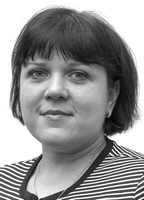Emotional burnout prevention in educators' health protection
Фотографии:
ˑ:
Teoriya i praktika fizicheskoy kultury №9 2017, pp.51-53
PhD, Associate Professor E.L. Pozharskaya1
PhD, Associate Professor E.V. Kamneva2
Dr.Sc.Phil., Professor E.V. Mochalov3
PhD, Associate Professor M.A. Eldin3
1Plekhanov Russian University of Economics, Moscow
2Financial University under the Government of the Russian Federation, Moscow
3N.P. Ogarev Mordovia State University, Saransk
The study gives data on the educators’ individual tolerance/ predisposition to the emotional burnout syndrome largely determined by the individual mental factors and job-specific conditions. The study was performed at Plekhanov Russian University of Economics and Moscow Industrial Economy College. Subject to the study were 28 educators of 23-46 years of age. The study applied two sets of tests, one including the subjective scales (emotional and physical fatigue exposure scale; plus the job satisfaction scale); and the other including reference tests to rate the individual individual tolerance/ predisposition to the emotional burnouts.
The study data and analyses gave us the grounds to conclude that the individual predispositions to the emotional burnouts are largely determined by the individual mental factors and a variety of conditions, including the job-specific ones. Further studies of the emotional burnout syndrome may be beneficial for the educators’ psychophysical health protection and early burnout diagnostics and prevention initiatives.
Keywords: emotional burnout syndrome, psychophysical health, depersonalization, emotional stress, stress saturation, frustration.
References
- Averyasova J.O., Kondrakov G.B., Vit'ko S.Yu. Professionalno-lichnostnoe razvitie spetsialistov po fizicheskoy kulture i sportu v period modernizatsii vysshego obrazovaniya [Professional personality development in physical education/sport specialists in higher education system modernization process]. Fizicheskaya kultura: vospitanie, obrazovanie, trenirovka, 2016, no. 3, pp. 73-75.
- Vasyakin B.S., Pozharskaya E.L. Sotsialno-psikhologicheskiy trening kak effektivny sposob preodoleniya trevozhnosti studentov [Socio-psychological training for students to effectively cope with anxiety]. Mater. IV Mezhdunar. nauch.-prakt. zaochnoy internet-konferentsii "Gumanitarnoe obrazovanie v ekonomicheskom vuze" [Proc. IV Internat. res.-pract. internet conf. "Education in Humanities in University of Economics"], 2016, pp. 62-74.
- Lebedev A.N., Kamneva E.V., Buyanova S.M. Vliyanie individualno-psikhologicheskikh osobennostey na «professionalnoe vygoranie» sotrudnikov organov vnutrennikh del [The effect of individual psychological characteristics on professional burnout of employees in law enforcement agencies]. Vestnik Finansovogo universiteta, 2012, no. 3 (7), pp. 58-63.
- Orel V.E. Fenomen vygoraniya v zarubezhnoy psikhologii: empiricheskie issledovaniya i perspektivy [Burnout phenomenon in foreign psychology: empirical research and prospects]. Psikhologicheskiy zhurnal, 2001, vol. 22, no. 1, pp. 90-101.
- Pozharskaya E.L., Vasyakin B.S., Deberdeeva N.A. Problema stressa i issledovanie stepeni stressoustoychivosti sotrudnikov s ispolzovaniem sushchestvuyushchikh metodik [Problem of stress and personnel's degree of stress resistance studied using actual methods]. Uspekhi sovremennoy nauki i obrazovaniya, 2016, vol. 2, no. 3, pp. 72-77.
- Pryazhnikov N.S., Polevaya M.V., Kamneva E.V. Paradoksy v ponimanii professionalnykh deformatsiy lichnosti [Paradoxes in understanding professional deformations of personality]. Vestnik Finansovogo universiteta, 2016, vol. 20, no. 6 (96), pp. 170-177.
- Gerashchenko A.L., Gerashchenko J.V., Shcherbakova O.I. Sovremenny trening: novye vozmozhnosti v biznese i obrazovanii [Modern training: new opportunities in business and education]. Moscow: PRUE publ., 2015, 227 p.
- Umnyashkina S.V. Sindrom emotsionalnogo vygoraniya kak problema samoaktualizatsii lichnosti (v sfere pomogayushchikh professiy) [Emotional burnout syndrome as a problem of individual's self-actualization (in caring professions)]. Tomsk, 2001.
- Vasyakin B.S., Ivleva M.I., Pozharskaya E.L., Shcherbakova O.I. A study of the organizational culture at a higher education institution (case study: Plekhanov Russian university of economics (PRUE)). International Journal of Environmental and Science Education. 2016, vol. 11. no. 18, pp. 11515-11528.



 Журнал "THEORY AND PRACTICE
Журнал "THEORY AND PRACTICE